Accounting software and Enterprise Resource Planning (ERP) softwares have changed the whole landscape of finance and commerce since their inception. As progress marches on and innovation being at the forefront of disrupting the current accounting and financial industry, newer or more nascent technologies are being deployed to fuel innovation by mainly, service providers to offer innovative solutions to its clients.
Then, the larger, more globalised enterprises such as the Fortune 500 brackets are testing cutting-edge technology in order to transform how their finances work to a more efficient portfolio and lessen the overall friction of the many processes that often overlap or have proven to be dependent on the micro-variables that encompass their webs of data being strung across multiple utilisations.
Disruptive technologies such as the ever nascent ones will progress to become the “current mainstream” ones, until the next great technology platform comes along.
In the year 2024, the most disruptive technologies in accounting are the following and their use cases:
Artificial Intelligence (AI) and Machine Learning
The application of AI and Machine Learning to augment smarter software applications used in Accounting.
Automation of tasks: AI-powered tools can automate routine tasks like data entry, invoice processing, and reconciliation.
Fraud detection: AI algorithms can identify anomalies and patterns indicative of fraudulent activities.
Predictive analytics: By analyzing historical data, AI can predict future financial performance and identify potential risks.
Robotic Process Automation (RPA)
Key robotic processes that are geared to transform financial processes to lessen the dependence on human actors on processes.
Efficiency gains: RPA can automate repetitive tasks, freeing up accountants to focus on higher-value activities.
Error reduction: By eliminating manual processes, RPA reduces the risk of human error.
Blockchain
Built on the technology of decentralised ledger, Blockchain promises to speed up financial reconciliations as banks and financial institutions are able to automate trade in a matter of seconds across cross-border trade.
Transparency and security: Blockchain technology provides a secure and transparent ledger for financial transactions.
Smart contracts: Automated contracts can streamline financial processes and reduce paperwork.
Cloud Computing
Accessibility across the network as cloud computing enables over the cloud file sharing, resource access and bridging services and key processes.
Accessibility: Cloud-based accounting software allows accountants to access financial data from anywhere with an internet connection.
Collaboration: Cloud-based platforms facilitate collaboration among team members and clients.
Data Analytics and Visualisation
Machines and computers are able to compute raw data faster than any human and visualisation entails more informed decision-making for analysts and business owners.
Insight generation: Advanced data analytics tools can uncover hidden patterns and trends in financial data.
Decision support: Data visualization tools can present complex financial information in an easy-to-understand format.
Augmented Reality (AR) and Virtual Reality (VR)
Enhancing the experience of finance as augmented reality will improve the overall meeting presentation from the screen, to a fully 3D setting.
Enhanced collaboration: AR and VR can improve collaboration among team members, especially for remote teams.
Immersive training: These technologies can provide immersive training experiences for accountants.
Now, the question underneath pandora’s box is: can automation or artificial intelligence platforms can replace accountants and their functions? Only time will tell, but if you need an experienced and trusted Accounting Firm that delivers Accounting Services in Coburg, Melbourne, NOAC Consultants draws upon decades of accounting experience and its team of innovative and adaptive to technology core team to deliver accounting, tax preparation services and financial reports to its clients.





